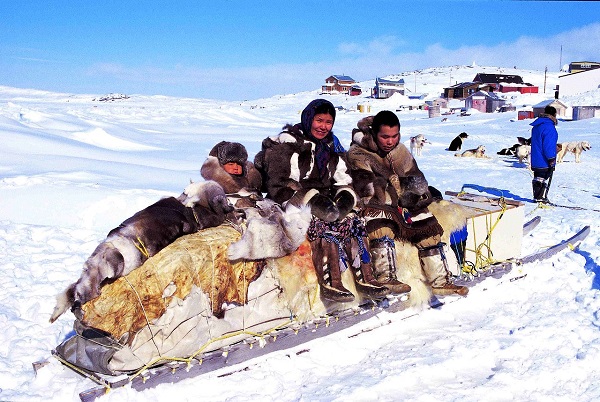By James Morales, | February 27, 2017

The population, particularly the ethnic groups in Yamalo-Nenets region, have experienced cases of obesity that were not linked to indigenous populations. (Ansgar Walk/CC BY-SA 2.5)
A recent study on ethnic groups has found that a change in diet resulted in the first cases of obesity. Processed foods, particularly instant noodles, are the culprit behind the growing cases of imbalanced diets among people who were once healthy several years ago.
The population, particularly the ethnic groups in Yamalo-Nenets region, have experienced cases of obesity that were not linked to indigenous populations. Alexey Titovsky, regional director for science and innovation, said that "it never happened before that the small local indigenous people of the north suffered from obesity."
Like Us on Facebook
The Yamalo-Nenets Autonomous Okrug in Northwest of Siberia has about 522,000 people. The nomadic groups herd reindeers in the Yamal tundra on a 700-kilometers long peninsula. Their diets are originally based on venison and fish. However, with the introduction of easier and "instant" diets, the ethnic groups started to consume noodles, pasta, and other processed foods. Their intake of venison and fish has been cut in half.
Processed food are easier to come by instead of catching fish and hunting deer. It can also satisfy a big family's hunger with less effort. The researchers say that the biological make-up of these people, which is used to drastic climates, is too good at breaking down carbohydrates and sugar.
This obesity problem, therefore, is not due to their body's inability to digest processed foods properly, but because their digestive systems are "too good." According to Andrei Lonbano of the Department of Ecological Monitoring and Biomedical Technologies, "the seasonal diet has also changed - the periods when they do not eat traditional food and replace it with carbohydrates has become longer," the Siberian Times reported.
These findings support another research conducted in 2015. The study let 20 fast food-loving Americans swap diets with 20 rural South Africans. The result proved that health risks were significantly increased among the South Africans, while greatly reduced among the Americans.
-
Use of Coronavirus Pandemic Drones Raises Privacy Concerns: Drones Spread Fear, Local Officials Say

-
Coronavirus Hampers The Delivery Of Lockheed Martin F-35 Stealth Fighters For 2020

-
Instagram Speeds Up Plans to Add Account Memorialization Feature Due to COVID-19 Deaths

-
NASA: Perseverance Plans to Bring 'Mars Rock' to Earth in 2031

-
600 Dead And 3,000 In The Hospital as Iranians Believed Drinking High-Concentrations of Alcohol Can Cure The Coronavirus

-
600 Dead And 3,000 In The Hospital as Iranians Believed Drinking High-Concentrations of Alcohol Can Cure The Coronavirus

-
COVID-19: Doctors, Nurses Use Virtual Reality to Learn New Skills in Treating Coronavirus Patients











